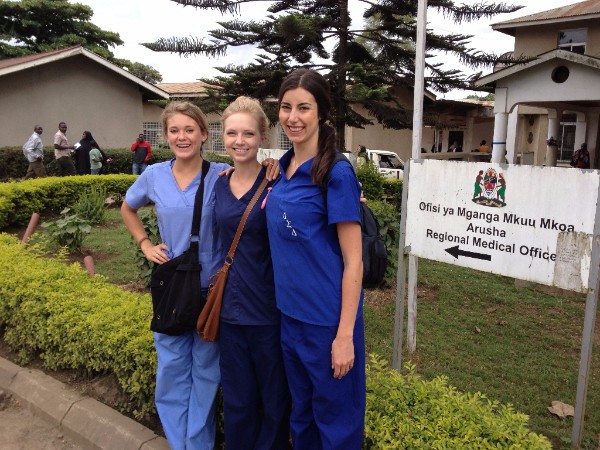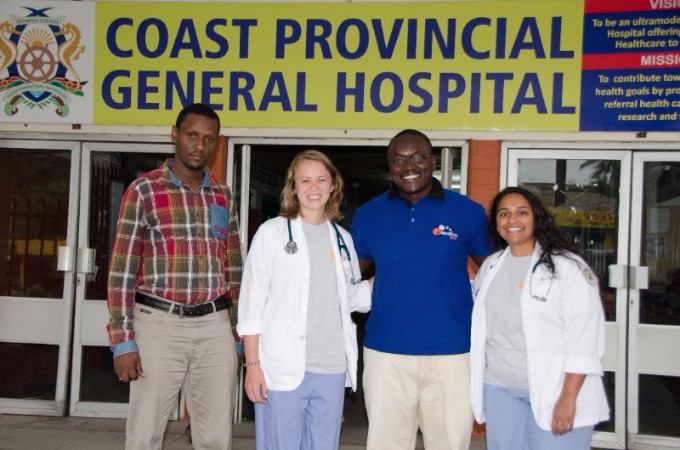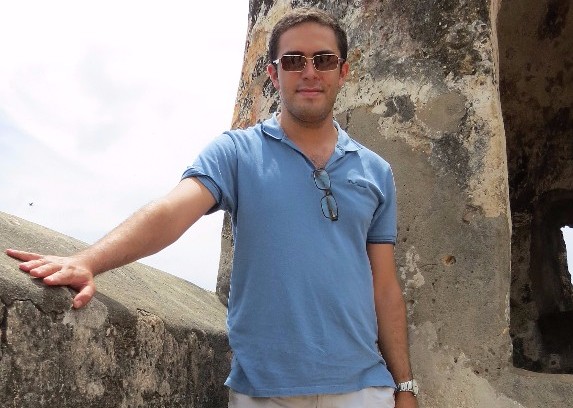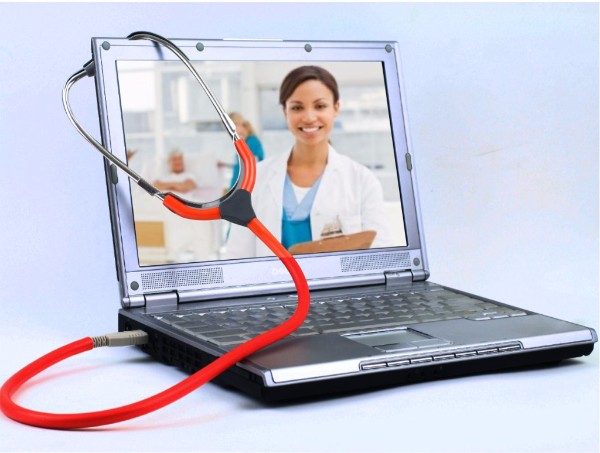 Visit Elective Africa website Visit Elective Africa website
|


|
|
|
| Elective Africa Monthly Newsletter |
 |
|
Happy New Year, Open a New Travel Diary in 2017. Every new year comes with new expectations, new opportunities and new challenges. In our 2017 inaugural edition, we give you a highlight of one of our popular electives destination, Arusha - Tanzania with a special focus on Levolosi Health Centre which provides a great learning opportunity for your rotation. Find the activities in the departments that you would experience, learn and participate in. Health services delivery have an economic, social and political aspect. With a nationwide doctors strike happening in Kenya and revealing just how low resources, political influences affect the care delivery, we look closely into some benefits of an elective in a developing country. These learning opportunities arise in political, social and economic contexts of the health system and provide career changing opportunities for healthcare students seeking to adventure beyond their classrooms. And finally, with the explosion of technology worldwide accruing many benefits in communication and sharing of information across national boundaries, we examine the importance of technology in bringing the improvements in healthcare industry. Do you have a healthcare topic of interest? Talk to us to guest write for our readers. Back to top |
| Your Placement Destination - Arusha Tanzania |
 |
|
Students begin planning for their elective or pre-health shadowing programs for the upcoming spring or summer holidays early in the year. Tanzania, one of our healthcare placement destinations, is a country with rich history, beautiful sceneries and a health system laden with learning opportunities. In exploring the value and opportunity hidden in an elective in this destination, we highlight the opportunities in Levolosi Health Centre. This is a primary healthcare facility that provide the whole entire range of services, with a particular emphasis on maternal and reproductive health care. Dr. Feksi, the hospital administrator and our key contact ensures that each students on placement receives an adequate orientation into the institution and its department including a tour of the facility. In this setting you need to interact with the healthcare delivery team and have a clear understanding of how the health services are delivered. A mentor supervisor will also be allocated to you depending on your department of rotation. Levolosi Health Centre has an established eye unit for those interested in ophthalmology and a dental unit for students interested in the field of dentistry. You can rotate in the following departments to maximize your experience and ensure you get an understanding of the health system. Pediatrics and Child Health Department - In this department the student will work alongside pediatricians to shadow learn and practice under supervision in such domains as: patients clerking, formulation of diagnosis, common ailments affecting children in developing countries, formulation of treatment plans for acute and chronic pediatric ailments, counseling and prevention strategies for patients. This enables you get a clear understanding of care for sick children in a resource constrained environment hence broadening you scope of understanding and skills. Obstetrics and Gynecology – Levolosi works hand in hand with Ngarenaro Hospital, a neighboring health facility that majorly serves women, and more appropriate for students interested in Women’s Health and Reproductive Health areas. It attends to 100 women a day. Students who are placed at the hospital get to learn on Care and Treatment Counseling (CTC) for HIV positive mothers, Prevention of mother to child (PMTC) for HIV cases at pregnancy, delivery and breastfeeding, early infant diagnosis, family planning,deliveries,C Sections, General maternity, and Voluntary Counseling, Testing for AIDS. In OBGYN, the students will get into the team delivering health services on care of the women reproductive health and the care of women during pregnancy childbirth and after. Here you will participate and learn in such activities as: pre-and-post natal care, proper diagnosis and ordering of treatment and rational use of drugs, management of pregnancy including how to carry out natural child birth, C-section operatives, basic life support and emergency care in relation to this department as well as health promotion and prevention activities under maternal health. Educating women on the need for prenatal care and visit s to the hospital and the importance of vaccinations is part of the impactful outreaches that you can be involved in. Accidents and emergency – From acute emergencies such as asthmatic attacks to chronic emergencies such as fatal road accidents in this department you become part of the team that delivers lifesaving and essential care. Here you will learn, shadow and practice under supervision in such activities as first aid administration, resuscitation and other life support procedures, emergency medicine drugs rational use, trauma treatment and management, body isolation techniques as well as the basic principles of referral of patients. Observing large number of patients, limited resources and often absence of essential items which leads to death of patients is key to developing firmness and passion in the profession skills that are key to excellence in healthcare industry. Surgery- Though limited in numbers and not high profile surgeries within this hospital unit you gain hands on experience surgical procedures such as conducting a surgical physical examination, interpret radiological data and surgery implication, how to collect and collate the surgery notes at all stages learn on the timings of special surgeries and the principles of anesthesia as well as the essential medication for surgical recoveries. The students are also able to understand the patient interaction and communication though such activities as obtaining consent and directing patients. Critical surgical cases are referred to Mt Meru Regional Hospital, a facility that has 450 beds. Dental Placement – This department is laden with activity for those students with interest in the dental profession. The shortage of staff and specialists in the dental field and the huge number of patients seeking dental health services you will participate and learn in such activities as: dental history taking and physical examinations, dental case management, general dental care, routine cleaning and checkups, permanent and general fillings, composite restorations, tooth extractions, treatment of gum diseases, incision and drainage and root canal treatment. Tenzin Kelsang from SUNNY Buffalo in NY is currently on a pre-dental internship placement and enjoying her experience in the dental unit. Her daily shadowing activities have included observing gum treatment, tooth extractions, filling, root canal among other procedures. Dental care in developing countries does not get much attention, as its more of a luxury than a necessity for many. Across all departmental rotations, you get to learn the human side of care though the interaction with patients who are less informed in their health. Interacting with health conditions in the advanced stages you get to learn how patient’s perspectives and culture influence the delivery of health services. The limited human resources come in handy to train you on how innovation and creativity blend in health services delivery. Back to top |
| Wholistic Learning From a Developing Country Placement |
 |
|
Political and governance structures in most developing countries may not be well developed and often there are stand offs between the government and the healthcare delivery team. Currently there is a nationwide doctors strike in Kenya.The medics site shortages in medical supplies and equipments as well as shortage of staff which prompt them to work long hours and attend to a large patient number. The strike is just a tip of the iceberg to the many challenges that confront the health system from the political, social to the economic context. A healthcare placement in a developing country is surely a unique opportunity to learn and experience a health system in a holistic angle. In such placement you interact with how low resources system functions and the strenuous conditions under which the healthcare personnel work to deliver the much needed healthcare services. The health systems in developing countries have inherent distinct characteristics which distinguish them from those of the developed countries. Among them:
In summary among many benefits you stand to gain by taking a placement with us in a developing country here are the key ones:
A healthcare professional who wants to make a difference must be in a position to understand the various aspects and factors affecting care delivery and with us you have the best bet on this. Unique electives and shadowing opportunities await you in Kenya at our coastal destinations, Nairobi or rural elective in Migori. Think Elective Africa as you plan on how to spend the upcoming spring and summer break on a learning trip abroad. Back to top |
| I would Recommend it to other students - Sean Westbury |
 |
|
Throughout my four weeks spent at Coast Provincial General Hospital, Mombasa doing my elective with Elective Africa, I have had a productive and fulfilling time both academically and socially. Back to top |
| Role of Technology in Delivery of Health Services |
 |
|
Health sector just as any other sector has a lot to hold to when it comes to technology. The explosion of technology across the globe means that people have access to information and can use it in improving their health. In developing countries such as Kenya; one of our popular destinations for healthcare placements, technology is slowly taking root in guiding the growth and diversification in care delivery. An example is the use of mobile technology mhealth which is the provision of health information through mobile phones. mhealth for example helps the patients track their appointments connect with their physicians for information on their conditions and ensure adherence to medication. Technology comes in handy supplementing the resource shortages through such measures as ensuring effectiveness in preventive measures, accuracy in diagnosis and shared knowledge among provides in urban and rural settings. Higher uptake of preventive measures means reduced patient numbers and more to it helps in fighting non communicable disease which are slowly taking a huge percentage of healthcare funding. In a placement with us you get to interact with the unique healthcare innovations happening and necessitated by the challenges present. Whether in record keeping, diagnosis, treatment or rehabilitative care, technology has a key role. Health systems across the globe stands to gain out of technology in various ways among them: Improving the functioning of the healthcare systems This can work through the use of technology to improve the management and access of healthcare information. The access and the utilisation of healthcare information enabled by the presence of technology will improve the management of logistics of patient care, proper record keeping of patient data and improvement of the ordering and billing systems.Technology further enables the sharing of patient information across the various levels of care delivery, proper sharing of information is also key in ensuring a sound referral system. Improving the delivery of healthcare This is through better diagnosis, better mapping of public health threats, better training and sharing of knowledge among health workers. The sharing of information among the staff across all levels of care delivery also ensures the telemedicine and the remote diagnostic support, the development of better diagnostic imaging apparatus. Information technology also helps in supporting quality assurance systems within the health systems, quality assurance is key to guiding of making decisions within the health systems. Part of the focus of contemporary medicine is prevention early detection and treatment of diseases technology is key in ensuring accurate disease surveillance and epidemiological studies intended to bring about improvement to the delivery of health care.The role of technology in monitoring and evaluation is key as the systems can be automated and the progress towards a desired objective clearly monitored hence improvement in healthcare delivery. Improving the communication about health This includes the improvement of information flows among the health workers and general public, better opportunities for health promotion and health communication. Technology also helps on improved feedback on the impact of the health services and interventions. Communication about health is key in research health needs assessment and the focusing of health care towards the delivery of the interventions that are most impactful to the populations. With the growth of mobile technology, patients are more informed and can be able to access the information regarding the essential steps that they should take in promoting their health including training and guidance by the healthcare professionals on adherence. With a large population in developing countries living in rural areas, the development of information technology is key in ensuring that the healthcare interventions are delivered even in rural setting hence achievement of health for all. Back to top |
|
|

 1 2017
1 2017